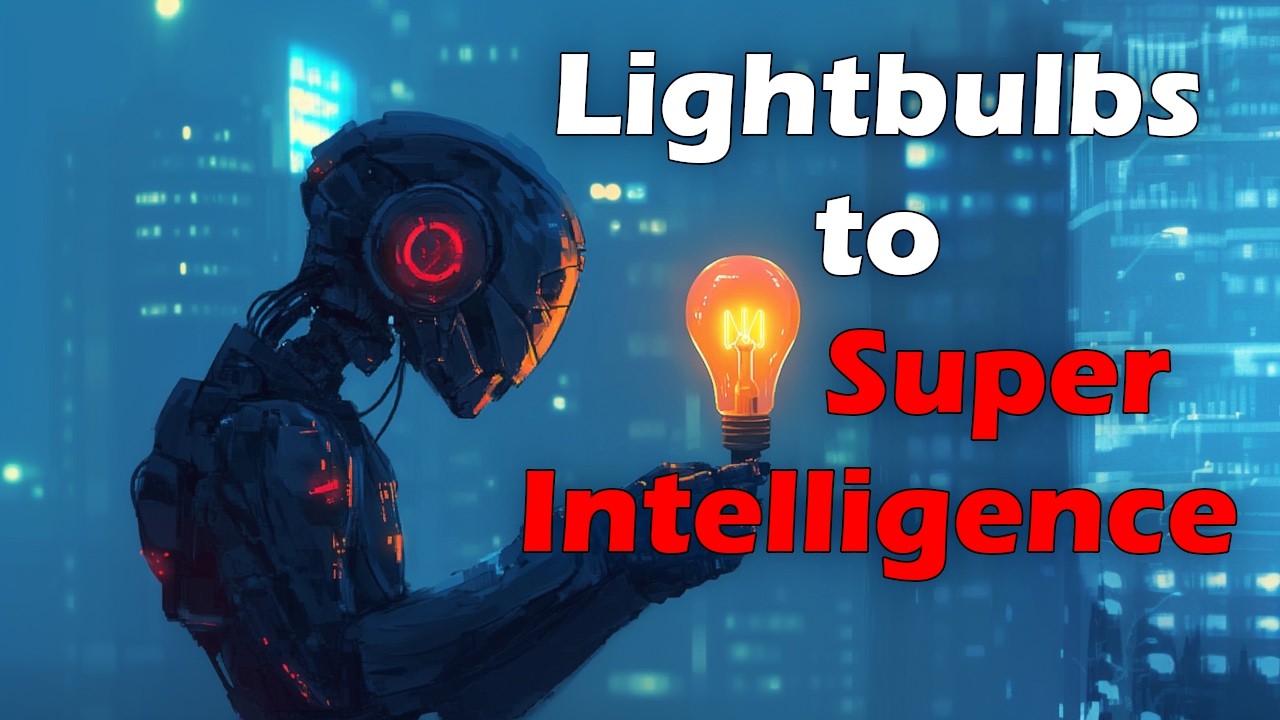The video compares the evolution of artificial intelligence (AI) to the historical development of electricity, highlighting how AI, particularly through large language models like ChatGPT, represents a significant milestone akin to the light bulb moment. It discusses the potential consequences of AI, including the rise of autonomous agents and interconnected AI systems, which could fundamentally transform society, work, and our understanding of intelligence.
The video explores the evolution of technology through the lens of electricity and its consequences, drawing parallels to the development of artificial intelligence (AI). The speaker begins by likening electricity to magic, explaining how it enables the flow of energy and information. They outline the first through fifth order consequences of electricity, starting with the light bulb as the first order consequence, followed by the telegraph and telephone as second order consequences, and progressing to radio and electric motors as third order consequences. The fourth order consequence is the internet, which emerged from the systematic use of electricity, and the fifth order consequence is artificial intelligence, which represents a further abstraction of knowledge and reasoning.
The speaker emphasizes that AI, particularly large language models, offers two core functionalities: knowledge compression and reasoning. They argue that the introduction of chatbots, exemplified by ChatGPT, marked a significant milestone in AI development, akin to the light bulb moment for electricity. This initial application of AI has led to widespread recognition of its potential, but the speaker suggests that we are only beginning to scratch the surface of AI’s capabilities, with many more consequences yet to unfold.
The discussion then shifts to the second order consequences of AI, which include the development of autonomous agents. These agents leverage the reasoning capabilities of AI and are expected to disrupt various sectors of the economy. The speaker posits that as AI agents become more integrated into society, they will fundamentally change how we operate, similar to how electricity transformed daily life. The potential for AI agents to operate independently and efficiently raises questions about the future of work and economic structures.
As the conversation progresses, the speaker introduces the concept of networks as a third order consequence of AI. They envision a future where AI systems communicate and collaborate autonomously, leading to the emergence of new organizational structures and economies. This interconnectedness could result in a world where AI plays a central role in decision-making processes, much like how the internet has become indispensable in modern society.
Finally, the speaker speculates on the fourth and fifth order consequences of AI, suggesting that we may eventually develop an “exocortex”—a global operating system that combines AI with the internet to enhance collective intelligence. They also touch on the idea of artificial superintelligence (ASI), which could possess cognitive abilities far beyond human comprehension. The speaker concludes by asserting that the evolution of AI will lead to profound changes in our understanding of intelligence and cognition, ultimately reshaping the fabric of society in ways we can only begin to imagine.
